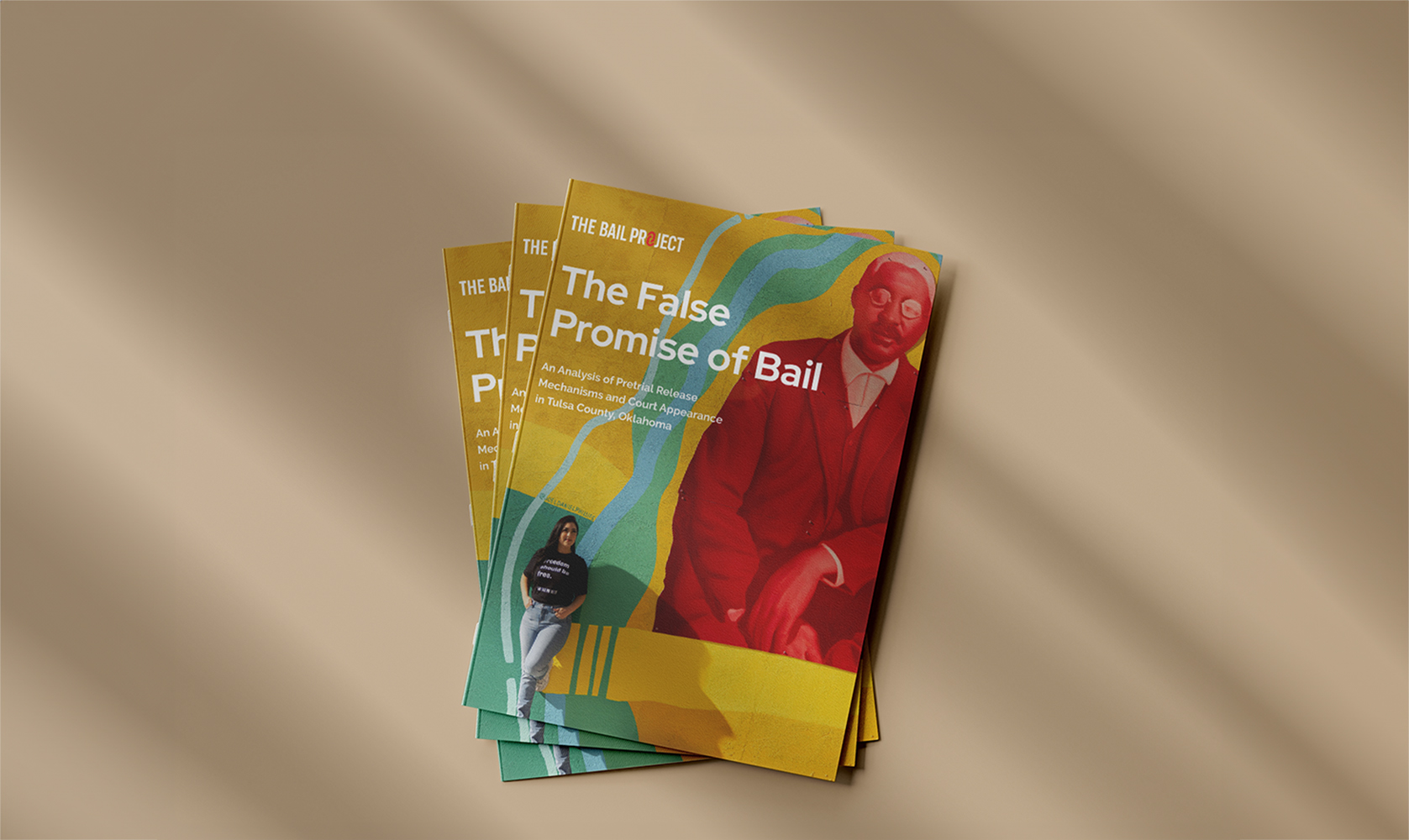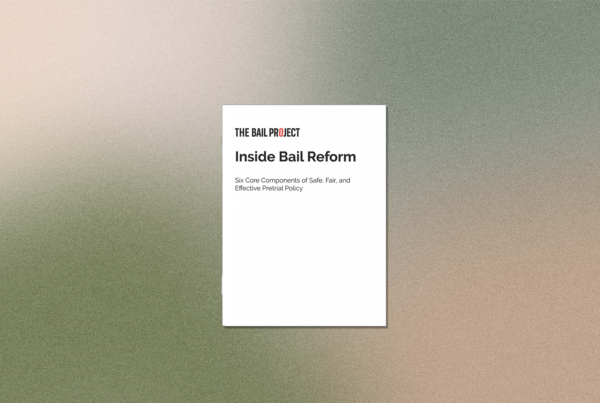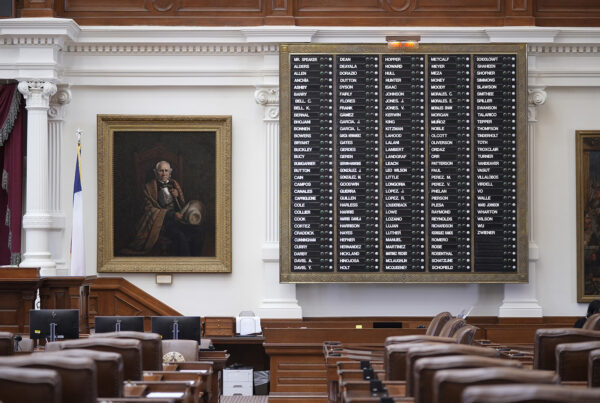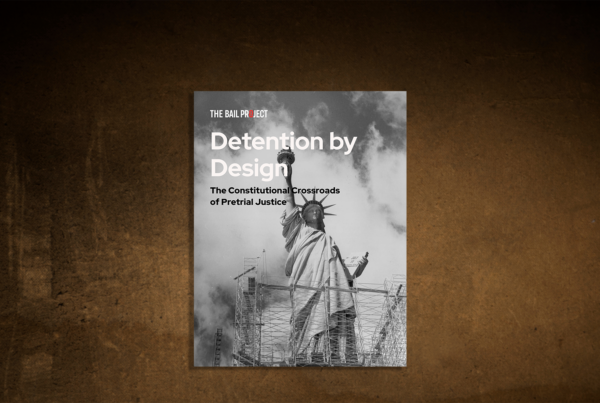The Bail Project’s latest report finds that court reminders and transportation – not money – are the key to pretrial success in Tulsa.
We’ve been told a lie about cash bail. That if people don’t pay money to get out of jail, they won’t show up for court. But our new report, The False Promise of Bail, shows the opposite is true in Tulsa County, Oklahoma: money doesn’t drive accountability – support does.
Released by The Bail Project, this is the most comprehensive analysis of pretrial release outcomes in Tulsa County, Oklahoma to date. It tracks over 3,300 cases and offers a critical window into how our bail system really works – and who it fails.
What We Found
Our research uncovered clear and troubling patterns:
- Support – not money – gets people to court. Individuals released without paying bail and given minimal assistance, like court reminders or transportation help, returned to court at higher rates that those who paid bail or relied on bail bond agents.
- The bail bond industry profits from inequality. Nearly half of all people in the study used commercial bail bond agents, paying nonrefundable fees. In 2023, the bail industry generated $2.4 billion in revenue.
- Wealth buys freedom faster. People who could afford bail were released in about 4 days. Those who couldn’t – and stayed detained the entire time – spent an average of 105 days behind bars without conviction.
- Judges impose harsher penalties on people released without paying. Failure-to-appear warrants were issued more frequently for people released without payment, increasing their risk of reincarceration – even when their missed appearance was for logistical reasons, not evasion.
- Pretrial freedom leads to better outcomes. People released before trial were 30% less likely to plead guilty and nearly twice as likely to have their cases dismissed.
These findings don’t just highlight a local problem. They call into question the very foundation of wealth-based detention systems across the country.
A Better Path Forward
Since 2018, The Bail Project has helped more than 2,600 Tulsa residents return home by posting bail and providing support – without contracts, conditions, or debt. Our clients show up to court not because they paid, but because they’re supported.
We believe Tulsa can lead the way in building a smarter, safer pretrial system. Based on our findings, we recommend six actionable reforms:
- Replace cash bail with supportive services like court reminders and transportation.
- Improve court notification systems.
- Make pretrial supervision helpful, not punitive.
- Speed up release decisions – especially for low-level nonviolent charges.
- Limit overuse of arrest warrants for missed court dates.
- Track and publish data on pretrial release and detention.
The Cost of Doing Nothing
Tulsa’s cash bail system is failing. It punishes poverty, erodes due process, and drains public resources. In a country where most people can’t afford an unexpected $400 expense, the average bail for a misdemeanor is $500 – and for a felony, $10,000. Nearly a third of the people in our study remained jailed pretrial for over three months simply because they couldn’t pay.
The fallout is devastating: people lose jobs, homes, and custody of their children. They plead guilty just to go home. Meanwhile, Tulsa County’s incarceration rate has risen over 150% in recent decades, costing taxpayers $30 million a year.
It’s time to ask: what exactly are we paying for?
Tulsa can choose a different path. It’s time to end cash bail and invest in humane, cost-effective alternatives that actually work – for individuals, families, and communities.
Thank you for your valuable attention. The urgency and complication of the cash bail crisis requires meaningful participation to create real change – change that is only achieved through the support of readers like you. Please consider sharing this piece with your networks and donating what you can today to sustain our vital work.












